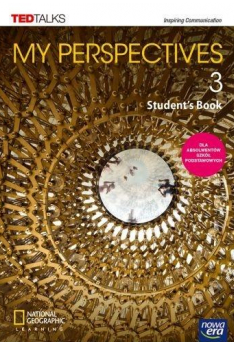II liceum
Język angielski
Lista zadań Strona 75
Strona 75
- Strona 4
- Strona 5
- Strona 6
- Strona 7
- Strona 8
- Strona 9
- Strona 10
- Strona 11
- Strona 13
- Strona 14
- Strona 15
- Strona 16
- Strona 17
- Strona 18
- Strona 19
- Strona 20
- Strona 21
- Strona 22
- Strona 23
- Strona 25
- Strona 27
- Strona 29
- Strona 30
- Strona 31
- Strona 32
- Strona 34
- Strona 35
- Strona 36
- Strona 37
- Strona 38
- Strona 39
- Strona 40
- Strona 41
- Strona 43
- Strona 45
- Strona 47
- Strona 48
- Strona 49
- Strona 50
- Strona 51
- Strona 52
- Strona 53
- Strona 54
- Strona 55
- Strona 56
- Strona 57
- Strona 59
- Strona 61
- Strona 63
- Strona 64
- Strona 65
- Strona 66
- Strona 68
- Strona 69
- Strona 70
- Strona 71
- Strona 72
- Strona 73
- Strona 74
- Strona 77
- Strona 79
- Strona 81
- Strona 82
- Strona 83
- Strona 84
- Strona 86
- Strona 87
- Strona 88
- Strona 89
- Strona 90
- Strona 91
- Strona 93
- Strona 95
- Strona 97
- Strona 98
- Strona 99
- Strona 100
- Strona 102
- Strona 103
- Strona 104
- Strona 105
- Strona 106
- Strona 107
- Strona 108
- Strona 109
- Strona 111
- Strona 113
- Strona 115
- Strona 116
- Strona 117
- Strona 118
- Strona 119
- Strona 120
- Strona 121
- Strona 122
- Strona 123
- Strona 124
- Strona 125
- Strona 127
- Strona 129
- Strona 131
- Strona 132
- Strona 133
- Strona 134
- Strona 135
- Strona 136
- Strona 137
- Strona 138
- Strona 139
- Strona 140
- Strona 141
- Strona 142
- Strona 143
- Strona 145
- Strona 147
- Strona 148
- Strona 149
6
Przetłumacz fragmenty zdań podane w nawiasach na język angielski.1 (Praca na pełny etat) is too much for her at the moment since she's busy taking care of her three children.2 How many times do I have to tell you (abyś znalazł czas) to have an annual medical exam?3 (Nie mam ochoty czekać) for him to come late as usual.4 (Musiał chyba zapomnieć) to inform us about his change of plans.5 My cousins from the USA are coming (za dwa dni)
7
7 Przeczytaj trzy teksty. Z podanych odpowiedzi wybierz właściwą, zgodną z treścią tekstu.Text 1Time became something that people began to think about 12 to 15 thousand years ago. It was then that hunters and gatherers noticed they could take grains and plant them and later harvest them. They needed to predict the exact moment that certain tasks had to be carried out to be able to successfully grow these crops. Knowing the time, therefore, became important knowledge and the concept became a part of ancient cultures. Before farming, there was no concept of mealtime or bedtime. Hunters and gatherers simply slept when it was dark. They often didn't eat for long periods of time and certainly didn't worry about when they'd have lunch!1 Which of the sentences is true in relation to the distant past?a People used to stick to having regular meal times. b People adapted their daily activities to the time of day.c People began cultivating the land using their knowledge about the seasons.Text 2If I had a time machine, yesterday would have looked a lot different. This is what I would have done if I could have done things differently: If I hadn't turned off my phone when the alarm went off, I wouldn't have been late for school. If I hadn't been late for school, I would have been on time for my engineering test. If I had been on time for my engineering test, I would have calculated the last question. If I had done that, I would have passed my exam. But since I don't have a time machine, I failed and will have to take the class again. What a bummer!2 The author of this text intends toa explain how one action causes a series of other unplanned actions.b prove that a failure to do one thing during the day doesn't cause a chain reaction.c advise how to break a sequence of unwanted events that seem to be unstoppable.Text 3If we could see everything going on in our bodies, we would realise that our bodies know almost exactly what time it is at any given moment. This is because of our circadian rhythm, or 24-hour cycle. One of the most important signals our bodies use to keep track of time is light. We produce all sorts of hormones based on what kind of sunlight we take in. Light also affects our brain waves, body temperature and the condition of our cells. If you deprived someone of sunlight, they would eventually develop all sorts of health problems. 3 The text is abouta disorders in absorbing light by a human body. b processes in humans caused by time zone changes.c the impact of time and light on a human body.
8
Rozmawiasz z kolegą ze Szwecji na temat egzaminu końcowego z języka angielskiego w szkole językowej, do której uczęszczacie. Poniżej podane są cztery kwestie, które musicie omówić:plan powtórzeń,indywidualna nauka,wspólna nauka,konsultacje z nauczycielem.
9
Wielu ekonomistów dowodzi, że należy wprowadzić krótszy tydzień pracy. Napisz rozprawkę, w której przedstawisz dobre i złe strony takiego rozwiązania. Wypowiedź powinna liczyć od 200 do 250 słów i spełniać wszystkie wymogi formy wskazanej w poleceniu.
